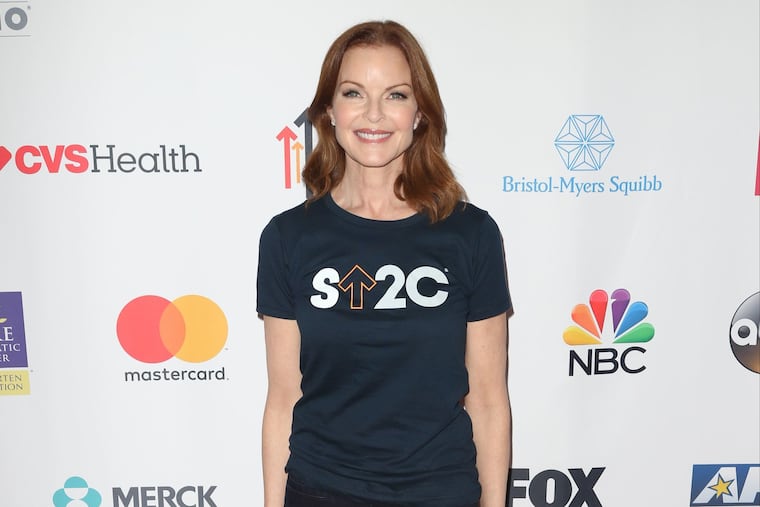How to encourage vaccination against HPV cancers? Drexel study suggests taking a cue from anti-vaxxers.
Public health groups that promote HPV vaccination on social media are careful to be factual. But facts can be dull.

To persuade more people to get the cancer-preventing HPV vaccination, public health groups should emulate a tactic of the anti-vaccine movement, concludes a Drexel University study of Instagram posts.
The researchers aren’t suggesting that vaccine proponents spread misinformation on social media, as vaccine foes do. But the study found that emotional, personal accounts with photos of youngsters — a staple of anti-vaccine content — get way more “likes” than the dispassionate, factual messages typical of pro-vaccine posts.
“By studying what makes these messages so effective, we can improve fact-based, pro-vaccination messaging,” said senior author Philip M. Massey, a community health researcher at Drexel.
The study, which analyzed 360 Instagram posts from April to August of last year, was conducted before Facebook — the owner of Instagram — announced this spring that it would curb anti-vaccine messages. But such content still abounds, because Facebook’s crackdown is limited to recommendations and ads.
» READ MORE: Facebook, Twitter are blocking dangerous antivaccine posts. It’s about time l Opinion
Before the crackdown, a majority of Facebook ads spreading vaccine misinformation were funded by just two groups, one led by Robert F. Kennedy Jr.’s World Mercury Project, according to a study published this month in the journal Vaccine.
Another study, in JAMA Pediatrics last year, found that 13 years after Merck’s Gardasil vaccine was hailed as a revolution in cancer prevention, most Americans still don’t know that HPV (human papillomavirus) is a family of sexually transmitted germs that can cause oral and genital cancers, and most doctors still aren’t promoting the shots.
The immunization is recommended for boys and girls at age 11 or 12, before they become sexually active, and as “catch-up" shots to age 26. But only about half of U.S. teens have been fully vaccinated, federal data show. (Adults ages 27 to 45 can opt for the immunization, although they are less likely to benefit.)
Despite low uptake, many studies show vaccination has reduced genital warts and precancerous lesions that can progress to cancer. (It will take more time to see the impact on cancer rates.)
But studies also show that while cervical cancer rates have declined over the last 20 years because of routine Pap screening, rates of mouth and throat cancers in men have risen more than 200%, and anal cancers in women have risen 150%.
Scientific groups and global health authorities who continue to monitor the vaccine assert that it is safe and does not cause chronic pain, heart arrhythmias, autoimmune diseases, life-threatening allergic reactions, stroke, neurological disorders, premature ovarian failure, miscarriages, or other health problems.
But that does not prevent vaccine foes from saying it does.
“So many sad stories on here,” a woman posted recently on the Facebook page Gardasil Class Action Australia. “Here’s mine. I had Gardasil in 2007, had a miscarriage in early 2008, and now have chronic fatigue and fibromyalgia. It’s so hard to be a good mum and give the kids what they need and the house clean when you’re sooo tired and your body aches.”
The Drexel study found that 46% of anti-vaccine posts on Instagram featured personal narratives, compared with 28% of pro-vaccine posts. Each anti-vaccine message got an average of 86 likes, compared with 24 likes per pro-vaccine post.
The paper, published in the journal Health Education and Behavior, has only a few examples of actual pro and con posts, including these:
“Your child can get protection for HPV cancers during the same visit they are protected against other serious diseases,” says the U.S Centers for Disease Control and Prevention.
“Jamie is not doing well after her first Gardasil vaccine for HPV prevention. She keeps turning yellow, wants to throw up and pass out,” says a post that shows a teenage girl folded over her knees in a chair.
Although the study does not propose potential pro-vaccine narratives, Massey said in an interview that developing and testing such messages on parents of preadolescents is the next step in his research.
He pointed to a recent Merck TV commercial as an example of a pro-vaccine message that “pulls at the heartstrings.” It portrays a young woman or young man with HPV-related cancer, voicing over a retrospective of photos and videos going back to age 11 or 12. The man speculates that his parents didn’t know about HPV or the vaccine, then his tween self asks, “Right, Mom? Dad?”
“The bottom line," Massey said, “is that there’s a great opportunity to incorporate storytelling into our pro-vaccine messages.”